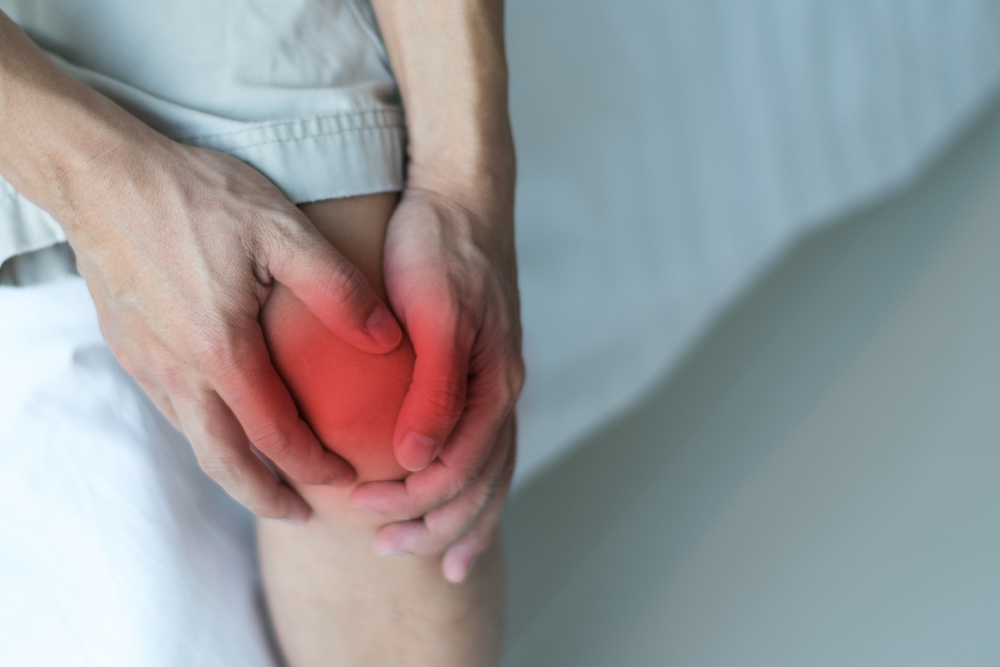If you are among those who have osteoarthritis, surgery is rarely the first option. There are plenty of treatment options that one can opt to avoid heading into the operation theatre.
No doubt, a knee surgery can provide relief from knee pain caused by one of the debilitating health condition, osteoarthritis of the knee, but there are other therapies to explore before taking this step. Take care of your knees with these easy tricks:

Also Read: Arthritis – Don’t Make Joint Pain An Old Age Companion
- Physical Activity– The condition of your knees depends on movement. If your muscles are strong enough, they can support the joint and relieve pressure. Exercise and physical activity are the best ways to strengthen the muscles that support your knee. If you keep moving, tissues within the joints will remain flexible, lubricated, and always loaded with nutrients that help to heal. One can include walking in his/her daily routine. Walking is a great remedy for weak knees; it keeps your knees healthy and pain-free. Exercise and any physical activity play a vital role in avoiding knee surgery, especially in osteoarthritis patients.
- Weight Loss-Weight loss is considered as an initial and a crucial step to avoid a knee surgery. Shedding extra pounds can reduce knee pain to half. Reducing those extra kilos can reduce complications and risk of surgery. Maintain and decrease your joint pain by eating joint pain diet.
- Topical Treatment-There are anti-inflammatory creams and gels available to help relieve joint pain. Such type of arthritis treatment is extremely effective for some patients. Topical treatment is considered as the effective joint pain medications.
- Injections-The next step which arthritis patients often take is corticosteroid injections. These injections effectively reduce pain and decrease inflammation in the joints. However, the effect of a corticosteroid injection stays for a short period and may cause damage if used frequently. Hyaluronic acid injections are another option to improve symptoms of osteoarthritis of the knees.
- Acupuncture- This is another easier yet effective method that has been in practice since from ancient times. The method is beneficial in relieving knee pain.
- Arthritis Medications-Several prescription and non-prescription joint health tablets are available to delay that visit to the surgeon. These medications are found to be effective in reducing knee pain and inflammation.
- Joint Health Supplement-Supplements containing essential nutrients have been shown to improve the condition of people with osteoarthritis of the knees. These natural supplements have been found to reduce pain and inflammation in such people.
- Arthroscopic Surgery-The surgery is the next step to get rid of knee pain. It is a procedure in which, a thin tube is inserted along with a tiny camera through an opening in your skin to have a view of the inside of your knee. This helps a surgeon to identify the damaged cartilage (a covering that protects the bones in the joints). With the help of arthroscopic surgery, your knee can be cleaned by removing loose pieces of cartilage that are responsible for causing pain. The type of surgery helps you get short-term relief and may delay more complex surgery.
Knee Replacement Surgery
In case, you have tried all the treatment options to get rid of osteoarthritis and still experiencing severe pain; your healthcare may suggest you a knee replacement therapy. It can allow your knees to improve its ability to move, by reducing the pain as well as inflammation. Knee replacement surgery includes a removal of a damaged part of the knee joint or removal of all knee joints (if damaged). These damaged knee joints are replaced with artificial joints, which are made up of metal or plastics to get back the ability to move your knee joints. Consider it to be the best time to go for knee replacement surgery if:
Also Read: These Simple Tips Can Keep Your Joints Healthy
- The severity of your knee pain is much high that it limits your daily activities
- Yours are experiencing severe pain, even if you are resting
- There is knee stiffness
- You are not getting relief with NSAIDs or other oral medications
- You have long-lasting swelling and inflammation that doesn’t go away with rest of the medications and treatments



